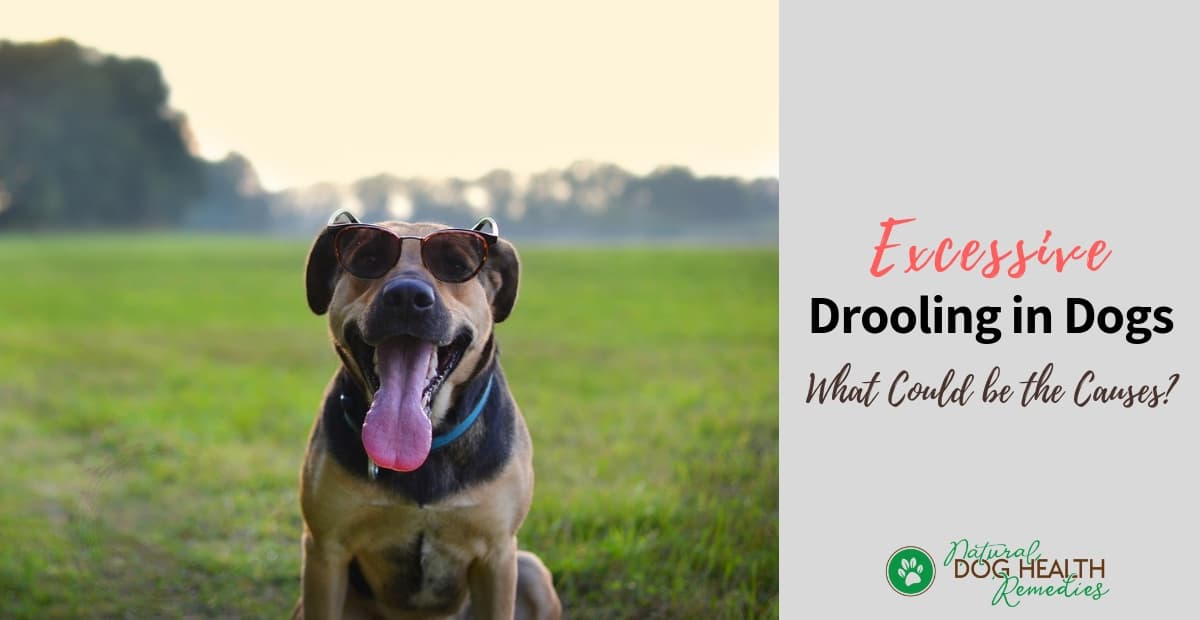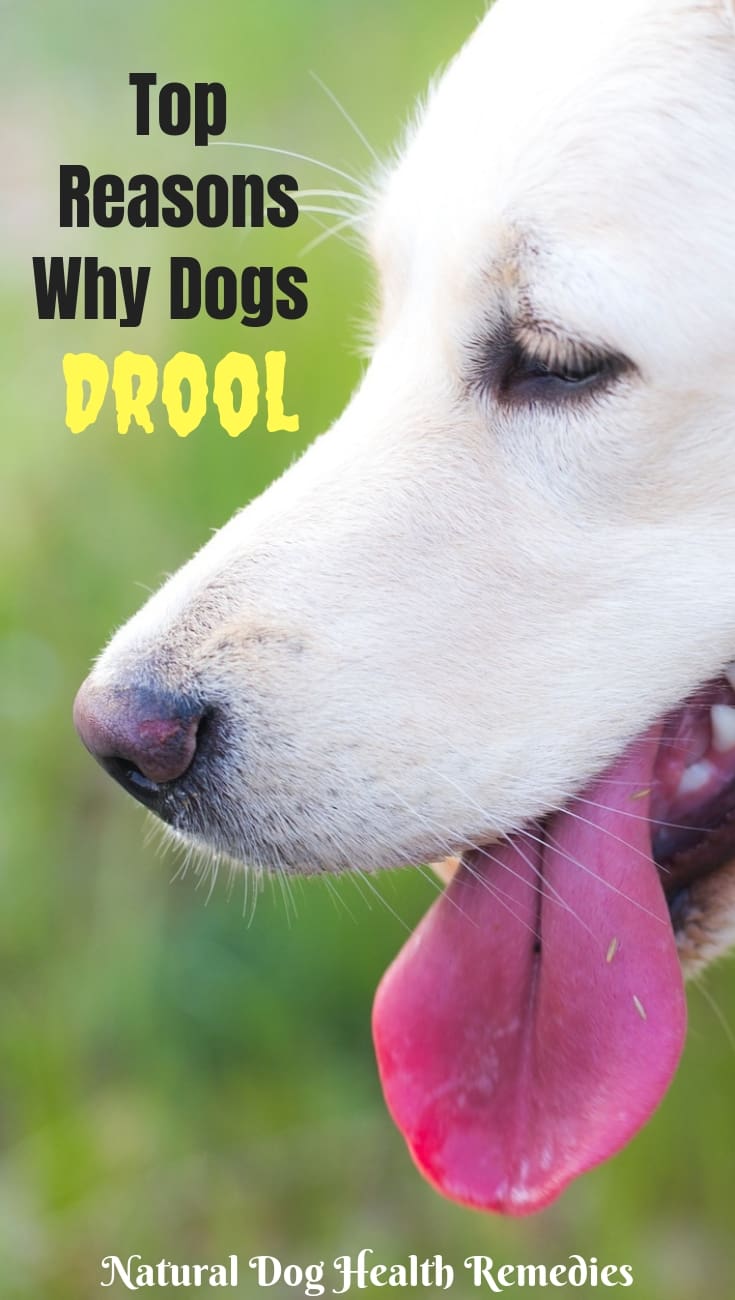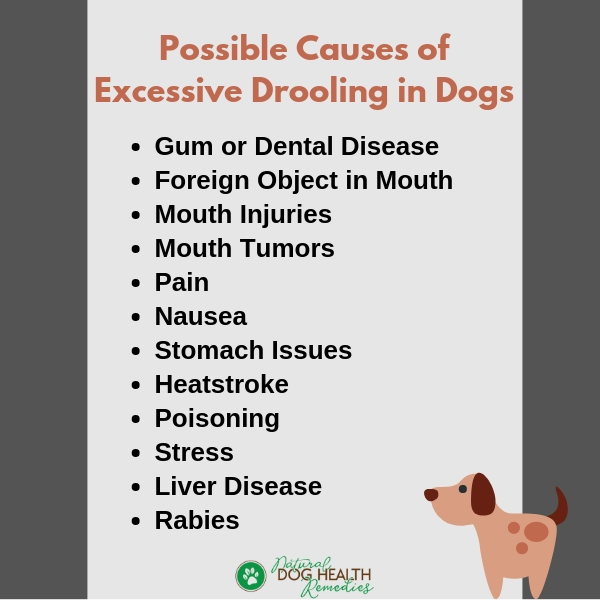Why Is My Dog Drooling So Much?

Overview
All dogs drool - especially when there is yummy food in front of them. That's natural.
Some breeds that have heavy lips such as bloodhounds and St. Bernards drool quite a lot because the loose skin around their mouths acts like a receptacle that traps saliva until it overflows. That's also natural.
What's not natural is when a dog suddenly starts drooling excessively (hypersalivation). It could mean that the dog is in pain or injured. It may also mean that he is suffering from certain health problem, either inside the mouth or in other parts of the body.
So what causes a dog to drool excessively? Let's find out...
Possible Oral Problems Causing Drooling in Dogs
If your dog suddenly starts drooling a lot, the first thing to do is to use a flashlight to check inside his mouth.
You may find that the drooling is caused by any of the following:
Foreign Objects
One common reason for a dog to suddenly drool a lot is that something is stuck in the dog's gums, embedded in his tongue, or caught between his teeth.
The object could be a piece of string, a bit of bone fragment, a fish hook, etc.
If you find a foreign object in your dog's mouth but are unable to remove it, seek veterinary help immediately.
Gum or Dental Disease
Another common reason why a dog drools a lot is gum disease such as tartar and gingivitis, or dental problems such as a bad or fractured tooth.
One way to check if your dog has gum or dental disease is to smell his breath (I know, it may not be a pleasant task...). Usually dogs with gum disease or a bacterial infection in the mouth will have really bad breath!
But of course the definitive way is to take your dog to the vet for a thorough checkup, and if necessary, cleaning and scaling of the teeth.
Injuries in the Mouth
Injuries inside a dog's mouth can also cause excessive drooling. Check for blood in the mouth and gums. Bleeding gums usually are bright red or even purple.
Oral Tumors
Tumors that occur in a dog's mouth (e.g. melanoma) can cause a dog to drool excessively. There are of course other signs that indicate the dog may have a tumor in his mouth, such as bad breath, bleeding from the mouth, and difficulty eating.
Other Causes To Consider
 If you cannot find anything unusual in your dog's mouth, consider the following possible causes of drooling:
If you cannot find anything unusual in your dog's mouth, consider the following possible causes of drooling:
Nausea
Many dogs will drool more than usual when they are traveling by car, because they suffer from motion sickness. The motion upsets their stomachs, causing them nausea which in turn causes them to drool excessively.
Stomach Issues
Some dogs with stomach issues such as bloating or IBS (inflammatory bowel syndrome) may also start drooling more than usual.
Bloating is a serious problem that could be fatal. If your dog is susceptible to this problem, be sure to take him to the vet without delay.
Pain
Dogs drool when they have pain. There are many reasons why a dog is in pain. For example,
If you suspect that your dog is drooling because of pain, check for other telltale signs that may confirm your dog is in fact in pain.
Overly Hot or Heatstroke
On a hot day, your dog has to pant to lower his body temperature. Panting also results in drooling in dogs.
If your dog has been outside on a hot summer day, and he starts panting and drooling, cool him down quickly and make sure he is hydrated to prevent heatstroke.
Brachycephalic dogs (dogs with flat faces such as pugs, bulldogs, etc.) are especially susceptible to heat and heatstrokes, so be very aware if your pug starts panting and drooling after playing or exercising outside.
Poisoning
Poisoning can also cause a dog to suddenly start salivating excessively. Depending on the poisoning substance that the dog has eaten, the dog may also showing such symptoms as diarrhea, vomiting or nausea, and sometimes even seizure.
Stress
Sometimes, a dog who is under stress also tends to drool. My dog used to drool a lot when she was at the vets because she was so stressed!
If your dog suddenly starts drooling excessively, and you can't find any physical issues that may cause the drooling, look for signs of stress.
Besides drooling, does your dog also tremble, pace, pant, or even act aggressively? Can you think of anything that may cause your dog stress?
Liver disease
Dogs suffering from liver disease may also drool excessively. Liver disease is a serious health condition and should be treated by a veterinarian without delay.
Rabies
Perhaps the most serious and scariest cause of sudden excessive drooling is rabies. But if your dog is vaccinated against rabies, this should not be the cause.


When to See a Vet Immediately
You should get immediate veterinary assistance when:
- you cannot remove a foreign object from the dog's mouth;
- you have reason to believe that your dog is drooling because of pain or poisoning;
- your dog has a broken or fractured tooth;
- you can see pus in the dog's mouth;
- your dog's mouth is bleeding which cannot be stopped;
- your dog's breath smells really awful.
Eldredge, et al. Dog Owner's Home Veterinary Handbook 4th edition (Wiley Publishing, 2007).
Merck Publishing and Merial. The Merck/Merial Manual for Pet Health (Merck, 2007).





